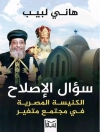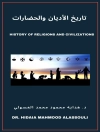In ‘Post-Mediæval Preachers, ‘ S. Baring-Gould explores the evolution of sermon literature in the transitional period between the medieval and modern eras. The book paints a vivid portrait of the diverse voices that emerged during this era, showcasing the stylistic shifts in preaching and its socio-religious impact. Baring-Gould’s scholarly approach unfolds through meticulous analysis of texts, incorporating a blend of historical context and literary critique that enriches the reader’s understanding of the preachers’ roles in shaping public discourse and moral thought. The eloquent prose and rich historical detail invite readers into a forgotten realm of religious fervor and oratory masterpieces. S. Baring-Gould, a prolific author and theologian of the late 19th and early 20th centuries, was deeply engaged with the religious milieu of his time. His extensive studies in folklore and ecclesiastical history, coupled with his own experiences as an Anglican priest, equipped him with a unique perspective on the dynamics between faith, culture, and communication. These insights manifest in ‘Post-Mediæval Preachers, ‘ where he weaves together his scholarly expertise with a deep appreciation for the significance of preaching in congregational life. For readers interested in the intersections of history, literature, and theology, Baring-Gould’s ‘Post-Mediæval Preachers’ is an essential scholarly work that not only illuminates a pivotal era in religious history but also offers timeless reflections on the power of rhetoric and moral persuasion. It is highly recommended for scholars, students, and anyone intrigued by the historical underpinnings of modern religious discourse.
Over de auteur
Sabine Baring-Gould (1834–1924) was an English hagiographer, antiquarian, novelist, and eclectic scholar who remains notable for the breadth of his literary and scholarly endeavors. His work as a writer encompassed several genres and subjects, perhaps most famously his hymns, including the enduring ‘Onward, Christian Soldiers.’ Baring-Gould’s scholarly pursuits were grounded in his rich education, which began at home under his father’s tutelage and continued at Clare College, Cambridge. His literary legacy is vast, including such works as ‘The Lives of the Saints, ‘ which remains a significant resource for ecclesiastical studies. In ‘Post-Mediæval Preachers, ‘ Baring-Gould presented a clear account of the history and influence of preachers following the medieval period. Known for his unique concatenation of history, folklore, ecclesiastical studies, and fiction, Baring-Gould’s writing is marked by its robust research, as well as its accessible and engaging narrative style. His antiquarian interests led him to amass a library that was indispensable to his literary and historical compositions. Throughout his life, Baring-Gould remained prolific, contributing copiously to the literary and historical discourse of his time. Eclectic yet erudite, his work continues to attract the interests of scholars, particularly within the fields of theology and history.




